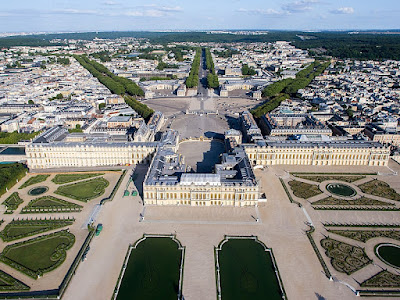"Great nations write their autobiographies in three manuscripts: the book of their deeds, the book of their words, and the book of their art. Not one of these books can be understood unless we read the two others. But of the three, the only trustworthy one is the last."
- John Ruskin, a 19th-century art critic
Disclaimer: I know virtually nothing about the visual arts ...
So I recently finished watching Kenneth Clark's "Civilisation" (spelled the
British way), a documentary series about the
history of Western art. Before I begin my review of it, I should give a disclaimer that I know virtually nothing about visual art. I have never taken an art class, nor a photography class, nor an art history class. I
play a little piano and do a little writing, so I have some experience with non-visual arts after a fashion; but I know next to nothing about the more visual arts. I don't even particularly like looking at most art, lacking an appreciation for it. In my adulthood, I found out the reason why: I have, quite simply, very little visual intelligence. When taking tests of my intelligence, I scored in the medium range for
math and in somewhat higher ranges for language - scores which corresponded to my later scores on the
GRE's. But I tested in the bottom 1 percent of the population for visual-spatial intelligence. This would explain why I've never been that interested in scenery, or why I didn't like my geometry class in high school - I am just not a visual person.
... but I am a history buff, which is what attracted me to this series
I am, however, a
history buff; which is what attracted me to this series. I thought I'd shore up this intellectual weakness of mine by learning about art history, which is an excellent prism for talking about the history of mankind generally. Kenneth Clark opens this series with an interesting quote from
John Ruskin, the 19th-century art critic, who said: "Great nations write their autobiographies in three manuscripts: the book of their deeds, the book of their words, and the book of their art. Not one of these books can be understood unless we read the two others. But of the three, the only trustworthy one is the last." This may be overstating the case a little bit - I often find words a trustworthy way of understanding people, and deeds even moreso. (In the admittedly clich
é words of an old saying: "Actions speak louder than words.") But nonetheless, you can find out a lot about a people by studying their art. It tells you a lot about their values, their ideas, and their culture; and art history is thus an excellent way to gain insight into a people.
Leonardo da Vinci's "Mona Lisa," from the sixteenth century



























